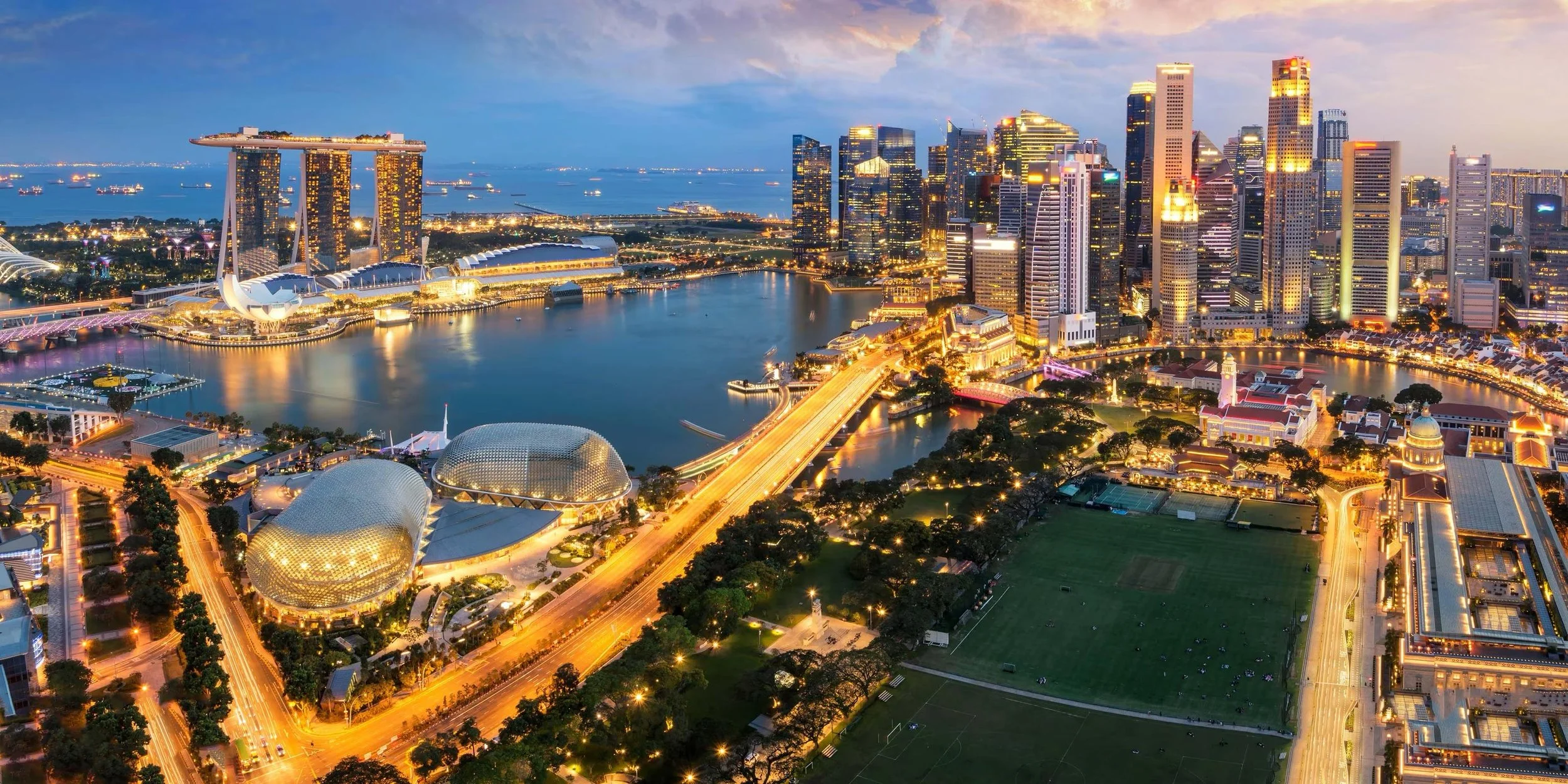Singapore: Secrets to Staying a Global Trade Hub
Singapore is a country that lies at the heart of Southeast Asia at the tip of the Malay peninsula, and has long been the centre of trade and business in the area - as well as a common international hub for foreign investors seeking to tap into the Asian market.
Singapore is one of four asian tigers (which include Singapore, Hong Kong, South Korea, and Taiwan); The name signifying its quick economic rise during the 1950s and 1990s. As such, it has placed itself firmly as a financial hub for international trade.
Singapore reaps its success from a few of these reasons. The first of which is its strategic location. Like mentioned previously, it is at the edge of the Malay peninsula which borders the Malacca strait, a region where nearly 30% of all trade passes. As such, it has specialised to handle things such as shipping, logistics and finance respectively.
Because it chose to become highly specialised in shipping/logistics, it has an extremely well-developed infrastructure. Through its extensive network of roads and harbours, It has an extremely efficient logistics and shipping system that allows for companies and firms to streamline their supply lines through Singapore. For example, the Port of Singapore is the busiest transhipment port in the world.
Singapore also has a diverse network of international commodity traders - Western and Asian - which set up their offices and headquarters here because of the ease of setting up businesses here, as well as legal certainty that ensures protection against any legal challenges a firm may face. This is why half of the world's crude oil supply passes through Singapore annually.
But like a football match, Singapore has many competitors eager to take its share of the pie, and it must adapt to a changing world environment, one that has grown more unpredictable and more competitive. With strategy and modernity, it will surely secure its spot as the number one international hub for trade.
One initiative that Singapore has embraced is the development of technology and the importance of Al in further modernizing the city-state. Singapore has already committed S$1bn ($767 million) to its AI development as part of its AI National Strategy. These funds are aimed at securing advanced chips, supporting companies to set up AI centres and funding training and upskilling programmes in hopes of meeting AI targets by 2029.
As Singapore navigates an unpredictable world, a mix of strategy, technology, and geography can keep the Lion City roaring for many decades to come.
Sources:
https://www.ft.com/content/c02976bf-8466-40bc-8c59-e59e4c4d7c6d
https://www.ft.com/content/cdea5463-3fd8-4642-94aa-d8ccd45c90b6
Article written by Rafi Wijayanto | Proofread by Zhangir Zhangaskin
